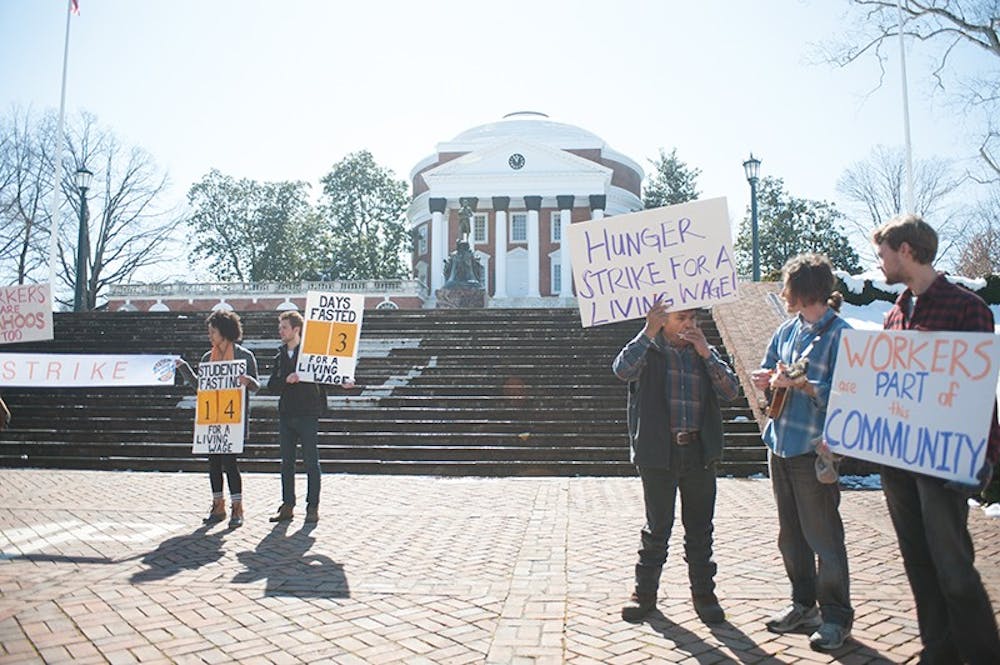The Living Wage Campaign ended its 13-day hunger strike yesterday but vowed to continue efforts to secure higher wages for the University’s lowest-paid employees.
A total of 26 students participated in the hunger strike.
Graduate Arts & Sciences student Dannah Dennis spoke at the campaign’s daily rally yesterday, thanking supporters and saying they would continue to promote wage increases at the University.
“This is the end of the strike, but it is not the end of the struggle,” Dennis said. “We are energized, we are organized and we remain… hungry but hopeful for justice and a living wage.”
The campaign’s stated goals include increasing the University’s minimum wage rate from $10.65 to $13 per hour, as well as indexing wages to inflation rates.
University President Teresa Sullivan raised the minimum salary rate from $10.14 to $10.65 in 2011, even though the state froze all employee salaries in 2007.
“I find myself unable to agree to a promise [of raising wages] that the University might not be able to keep,” Sullivan told the Board of Visitors Feb. 23. “To make the promise represents to me a fundamental lack of integrity [and] equally important, it represents an abdication of my responsibility to balance all the competing financial priorities before us.”
Timothy Hulbert, the president of the Charlottesville Regional Chamber of Commerce, sent a letter to Sullivan Wednesday praising her management of the situation and the University’s compensation packages. He said the University’s benefits package leads the market.
“Allegations that the University lacks concern for employees at various entry levels are simply uninformed,” Hulbert wrote. “A job at U.Va. is a good job that offers advancement.”
Graduate Arts & Sciences student David Flood said at the rally yesterday the campaign had achieved success despite its failure to secure a wage increase for the University’s lowest-paid employees. He pointed to the large amount of attention the campaign had received from students and the community and said the campaign had educated members of the public about its goals.
“The administration was forced to send two emails to some 40,000 people responding explicitly [to] our campaign,” Flood said. “We have brought an unprecedented level of attention… every member of the [Board of Visitors], and top administration figures, got literally thousands of emails supporting us.”
Michael Strine, executive vice president and chief operating officer, said in a University-wide email Wednesday the administration has asked Student Council to explore the creation of a student budget advisory committee to give insight into University finances and allow students to express concerns about the school’s budget.
Third-year College student Hallie Clark, a living wage supporter, expressed skepticism about how effective such a committee would be.
“It’ll be interesting to see if we are allowed to be formally a part of it,” Clark said. “Right now it’s going to be [composed of] the representatives who are already on StudCo.”
Council plans to discuss the creation of a student budget advisory committee at its March 13 meeting.







